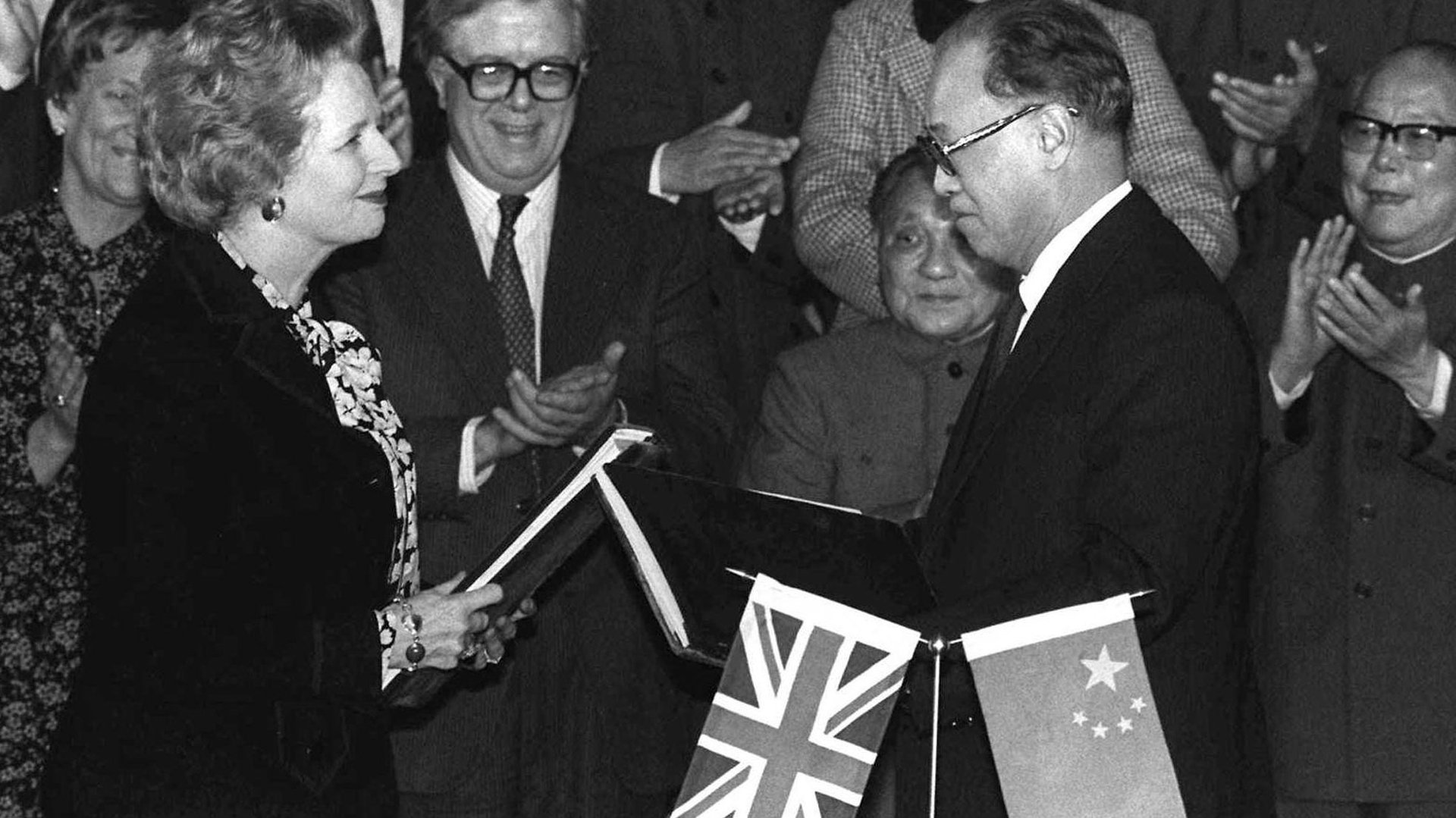Hong Kong’s election is proof that “One Country, Two Systems” isn’t dead yet
The bizarre “One Country, Two Systems” formula under which Hong Kong has been ruled since its handover to Beijing in 1997 has been declared dead many times—but last Sunday’s elections may just have proven its remarkable resilience.


The bizarre “One Country, Two Systems” formula under which Hong Kong has been ruled since its handover to Beijing in 1997 has been declared dead many times—but last Sunday’s elections may just have proven its remarkable resilience.
Invented by China’s former paramount leader Deng Xiaoping for China to govern Hong Kong, it was a bold and imperial idea. By allowing Hong Kong to retain its partially democratic system and freedom of expression, it would let the far away “province” govern itself, as long it remained loyal to the center. The current Chinese government has more desire to control and more technology to do so than Deng or the emperors used to, but Hong Kongers are nevertheless guaranteed the right to vote in partial elections, freedom of speech and press, and an independent judiciary, rights citizens on the mainland only wish for.
In many ways, the combination of Hong Kong with China has been like a marriage between two near-strangers, one of whom was brought to the altar without being asked their opinion, and where the power balance is fatally skewed. Hong Kong, with its long-held democratic aspirations and millions of residents who had fled Communist rule on the mainland, was never going to be an easy addition to China. Leaders in Beijing are obsessed with control, and national identity in China is increasingly defined as supporting the Communist Party.
Unsurprisingly, “One Country Two Systems” has been under severe stress in recent years.
The most serious pressure came at the end of last year, when five booksellers from Hong Kong were abducted by Chinese officials—three as they were traveling to China, one as he was in Thailand, and the fifth, a British citizen, even more ominously from the streets of Hong Kong itself. The sudden, unlawful arrest of dissidents is no surprise in China, but nothing of the kind had ever happened in Hong Kong. The booksellers had been publishing books critical of the Communist leaders, which is well within their rights in Hong Kong.
The reverberations of that incident have been worrying and profound. “Us Hong Kongers need to put up our guard and be on alert, and cherish our hard-earned rule of law,” as University of Hong Kong legal scholar Eric Cheung told Quartz.
As “One Country, Two Systems” comes under greater pressure, it has become clear that Hong Kong is quite alone in facing up to Beijing.
“The only other country that should keep China in check when it comes to Hong Kong is Great Britain,” said Jorge Guajardo, Mexico’s former ambassador to Beijing. “But they have been rather weak, both through the Umbrella Movement in 2014 and how they reacted to the abduction of a British citizen.” The result, Guajardo said, is an “emboldened” China.
On Sept. 4, however, Hong Kong elected 30 pro-democracy candidates, three more than in the last election, and six of which advocate varying degrees of self-determination, if not outright independence from Beijing. It is the biggest proof to date that the “Two Systems” part of that equation is still alive and kicking.
“The elections absolutely prove that ‘One Country, Two Systems’ is doing well,” said Margaret Ng, a high-profile lawyer and a former Legislative Council member. “Even more so under the current circumstances, because we are facing a situation where a lot of people are trying to demolish this formula.”
Not too surprisingly, domestically, China pretended they did not happen, censoring election results on the mainland. Beijing’s official reaction has been fairly muted: a statement and few editorials stating all talk of independence is illegal, even though in Hong Kong discussing any topic is still within the law.
China has been increasingly intervening in Hong Kong’s affairs through its Central Liaison Office, China’s highest representative in Hong Kong, and Beijing reportedly had a big role in this election. “Various candidates have openly acknowledged the help of the Liaison Office in getting them elected,” said Ng.
But the results, based on a record number of voters, are a rebuke to those efforts. “It is amazing to see that in spite of the money, the muscle and the manpower that they have, they still did not manage to get more people elected,” Ng said.
Hong Kong still wants democracy. That it can ask for it through partial universal suffrage is proof that the “One Country, Two Systems” formula is still being applied.